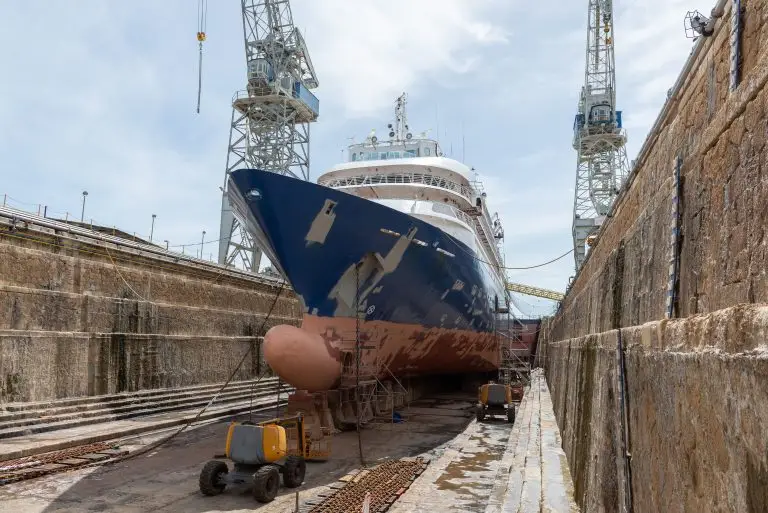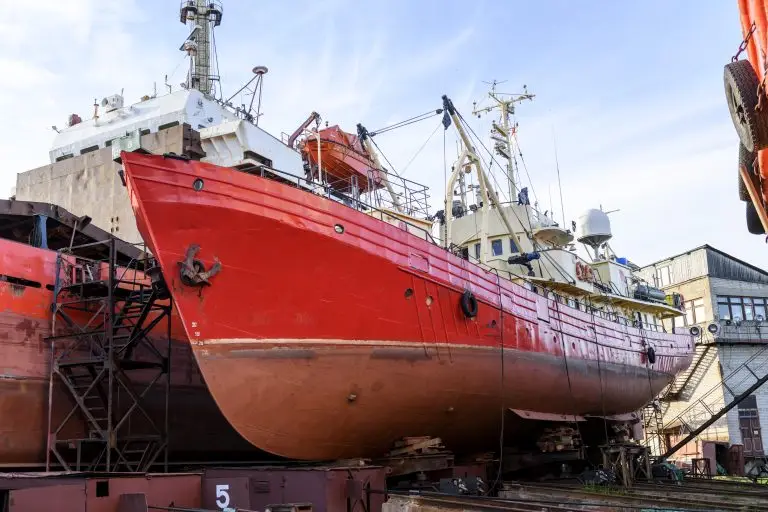
Welcome to Federation Academy, where we offer the MEM40119 – Certificate IV in Engineering (Marine Craft Construction), a comprehensive qualification designed to equip individuals with the skills needed for various engineering roles, particularly in marine craft construction. Our program blends theoretical knowledge with practical application, preparing students for a range of vocational outcomes.
This course imparts skills applicable to a broad range of engineering work, particularly in the realm of marine craft construction. Students gain expertise in quality control, communication, work planning, and other essential areas. The curriculum covers tasks such as interpreting technical drawings, using hand and power tools, and maintaining marine vessel surfaces.
Our program is tailored for individuals seeking further employment in the boat building sector or looking to move into the industry with a construction and or engineering background.
Industry-Relevant Expertise: At Federation Academy, we specialize in providing industry-relevant education. Our Certificate IV in Engineering (Marine Craft Construction) is meticulously crafted to meet the demands of the engineering sector, especially in marine craft construction. You’ll benefit from a curriculum designed in collaboration with industry experts, ensuring you acquire the skills most sought after by employers.
Practical Application: We understand the importance of hands-on experience. Our program doesn’t just focus on theoretical knowledge; it places a strong emphasis on practical application. From interpreting technical drawings to using advanced tools and maintaining marine vessel surfaces, you’ll gain real-world skills that set you apart in the competitive engineering landscape.
Holistic Skill Development: Beyond technical expertise, our course is designed to foster holistic skill development. You’ll not only master the intricacies of marine craft construction but also enhance your communication, planning, and quality control skills. This holistic approach ensures you graduate as a well-rounded professional ready to tackle diverse challenges in the field.

| Unit Code | Unit Title | Units (Core/Elective) |
| MEM13015 | Work safely and effectively in manufacturing and engineering | C |
| MEM11011 | Undertake manual handling | C |
| MEM16006 | Organise and communicate information | C |
| MEM13001 | Perform emergency first aid | E |
| MEM12023 | Perform engineering measurements | C |
| MEM12024 | Perform computations | C |
| MEM16008 | Interact with computing technology | C |
| MEM09002 | Interpret technical drawing | C |
| MEM09003 | Prepare basic engineering drawing | E |
| MEM09011 | Apply basic engineering design concepts | E |
| MEM09009 | Create 2-D drawings using computer-aided design system | E |
| MEM14006 | Plan work activities | C |
| MEM18001 | Use hand tools | C |
| MEM18002 | Use power tools / handheld operations | C |
| MSMENV272 | Participate in environmentally sustainable work practices | C |
| MEM07024 | Operate and monitor machine and process | E |
| MEM12007 | Mark off/out structural fabrications and shapes | E |
| MEM25003 | Set up marine vessel structures | E |
| MEM13003 | Work safely with industrial chemicals and materials | E |
| MEM25004 | Fair and shape surfaces | E |
| MEM25007 | Maintain marine vessel surfaces | E |
| MEM25008 | Repair marine vessel surfaces and structures | E |
| MEM07001 | Perform operational maintenance of machines/equipment | E |
| MEM08011 | Prepare surfaces using solvents and/or mechanical means | E |
| MEM25011 | Install marine systems | E |
| MEM25015 | Assemble and install equipment and accessories / ancillaries | E |
| MEM50002 | Work safely on marine craft | E |
| MEM50003 | Follow work procedures to maintain the marine environment | E |
| MSMENV472 | Implement and monitor environmentally sustainable work practices | E |
| MEM05005 | Carry out mechanical cutting | E |
| MEM05007 | Perform manual heating and thermal cutting | E |
| MEM05049 | Perform routine gas tungsten arc welding | E |
| MEM05050 | Perform routine gas metal arc welding | E |
| MEM11010 | Operate mobile load shifting equipment | E |
| MEM11022 | Operate fixed/moveable load shifting equipment | E |
| MEM17003 | Assist in the provision of on-the-job training | C |
| MEM15004 | Perform inspection | E |
| MEM16004 | Perform internal/external customer service | E |
| MEM09010 | Create 3-D models using computer-aided design system | E |
| MEM09021 | Interpret and produce drawings of curved 3-D shapes | E |
| MEM16010 | Write Reports | E |
| MEM16005 | Operate as a team member to conduct manufacturing, engineering, or related activities | E |
Students enrolling into MEM40119 – Certificate IV in Engineering must meet the following entry requirements:
Upon successfully completing the Certificate IV in Engineering (Marine Craft Construction) – MEM40119, graduates can embark on diverse career pathways within the engineering and marine craft construction sectors. Here are potential vocational outcomes and job roles:
Upon successfully competition of the qualification, graduates can follow the below academic pathways:
* Federation Academy does not offer bachelor-level qualifications.
The vocational work placement component of the course is not a requirement under the training packaging rules for the MEM40119 – Certificate IV in Engineering. However, during the course planning and designing phase, the marine craft industry representatives emphasised the critical need for students to complete a dedicated amount of time in a real workplace outside of their learning environment. Industry consultation has confirmed that VWP is a must / mandatory requirement, and all students will need to complete this to successfully achieve the qualification.
The work placement component will complement the practicum assessments completed and must be undertaken within a commercial ship building and repair workshop. This real industry workplace would service customers to industry-realistic expectations. The student may already be in suitable employment or alternatively a suitable work placement will be provided by Federation Academy.
VWP is designed as an unpaid work placement and a part of the academic requirement to successfully achieve the qualification. VWP host employers are free to offer “paid” work placement as per their workplace policies. All students are covered under Federation Academy’s business insurance, while undertaking VWP.
VWP is scheduled as an individual study term (16 weeks) at the end of the course, however students can commence VWP after a minimum of 6 months study. This will be subject to VWP being undertaken outside the scheduled course time table and approval from Federation Academy’s trainer to confirm the student’s vocational competency to commence the VWP.
Work placements are designed to ensure that all required workplace knowledge & skills acquired across all meet the needs of a variety of ship / boat building and repairs.
A logbook will be issued to each student and will be required to complete the required service periods. A shift consists of a minimum of four (4) hours per day (either AM or PM shift). The VWP must be completed and recorded in the VWP logbook issued to students and signed by the immediate supervisor of the business operation.
Prior to placing students into a VWP Federation Academy will assess the suitability of the business operation for VWP. This is to ensure that the workplace has the equipment, as specified in the training package, to meet that of a commercial ship / boat building workshop. In the event the workplace does not have all the required equipment for the VWP purposes Federation Academy will make alternative arrangements with the student.
Once a workplace is deemed appropriate a formal agreement will be entered into with the establishment. This involves the business operation accepting Federation Academy student/s for work placement. The formal agreement will specify the number of shifts the student is required to complete, the type of work that the student can undertake along with the guidelines relevant to employer, student, and Federation Academy. Formal guidelines are developed to ensure all unit and course requirements are addressed.
When undertaking VWP students will have in possession a student guide for VWP that includes information on how to complete the VWP logbook & copy of the work placement agreement / guidelines. Students undertaking work placement will follow timing and uniform requirements according to the workplace’s standards.
The trainer will visit each student on placement a minimum of once every 4 weeks to ensure positive progression. The trainer will discuss the progress of the student with their direct workplace supervisor. In addition to this the trainer will check to ensure logbooks are completed to the required standard and that the student is being assisted and supported as per workplace agreement.
The trainer will have:
The Workplace Facility Provider Formal Agreement (Signed)
The Placement Agreement (Signed)
"Strive for perfection in everything you do. Take the best that exists and make it better. When it does not exist, design it."
Sir Henry Royce